
Online Summer Courses for 2025

These courses provide online and summer scheduling flexibility and the opportunity to take technical elective courses in Environmental Engineering to Clemson students as well as students from other colleges and universities. These courses are also expected to be of interest to established environmental practitioners (engineers, chemists, biologists, and others) who can, for the first time, take these interesting courses while working full-time. Professional Engineers and others can earn 45 PDHs by completing these courses.
Many employers encourage employees to take these courses by offering full or partial funding. Please reach out to your employer to see if support is available.
All course activities will be conducted online and will be available 24/7. Homework and exams will be submitted online. Weekly daytime and evening online office hours will be offered in addition to a 24-hour turnaround on email questions. There is no laboratory work associated with these courses.
Information about the courses is given below. Syllabi for previous versions of the courses are available in the Syllabus Repository. Current syllabi are available from the instructors.
All Summer Courses-
BE 4240/6240 Ecological Engineering
Catalog Description: Focuses on engineering solutions to environmental and socioeconomic problems using ecological design principles.
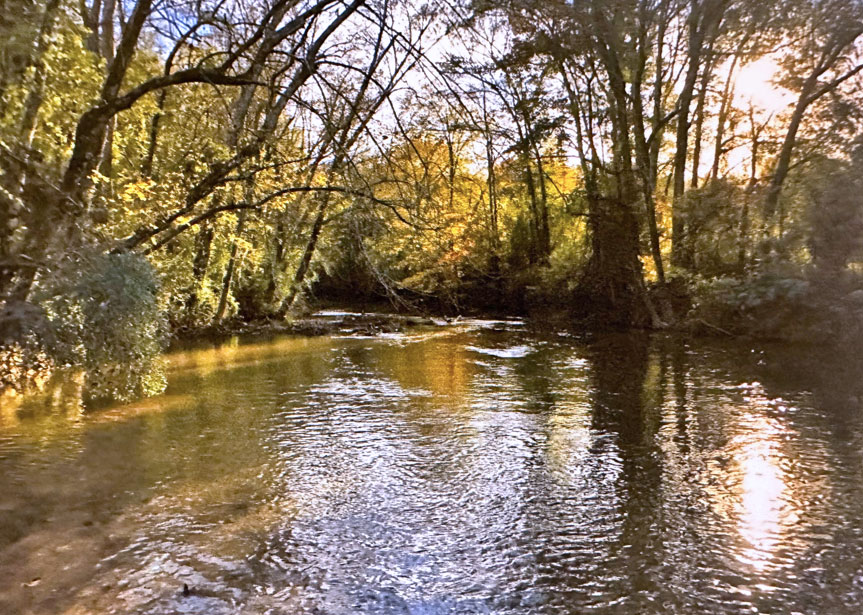 Explores ecosystem processes as they pertain to sustainable development, natural resource protection, food and energy production, waste management, and environmental restoration. Engineering fundamentals and ecological modeling are integral components of this course. Preq: CE 3410 or CHE 2300 or ME 3080.
Explores ecosystem processes as they pertain to sustainable development, natural resource protection, food and energy production, waste management, and environmental restoration. Engineering fundamentals and ecological modeling are integral components of this course. Preq: CE 3410 or CHE 2300 or ME 3080.Credits: 3
When: First Summer 2025 (May 13 - June 20)
Prerequisite: CE 3410 or CHE 2300 or ME 3080. These requirements can be waived for qualified Clemson students with instructor permission and are not applicable to transient students.
Instructor: The instructor will be Christophe Darnault (cdarnau@clemson.edu). Dr. Darnault is an Associate Professor in the Department of Environmental Engineering and Earth Sciences. His research centers on advancing sustainable water resource management, environmental resilience, and ecosystem health, with a focus on environmental fluid mechanics, contaminant transport, and hydrological modeling. His work addresses the complex challenges of climate change, urbanization, agriculture, and contaminant behavior in both surface and subsurface environments.
-
EES 4010/6010 - Environmental Engineering
Catalog Description: Introduction to the field of environmental engineering. Topics include environmental phenomena, the impact of pollutants on the aquatic environment, solid-waste management, air pollution control, radiological health, and simple water and wastewater treatment systems.
Credits: 3
When: First Summer 2025 (May 13 - June 20)
Prerequisites: Prerequisite or concurrent enrollment in Fluid Mechanics (CE 3410 or CHE 2300 or ME 3080). Geology students may meet the prerequisite requirement with a course in Groundwater and Contaminant Transport (GEOL 4820) and either Analysis of Geological Processes (GEOL 4150) or Calculus of Several Variables (MATH 2060). Non-Clemson students should have completed coursework in statics, dynamics, and multivariable calculus to be adequately prepared to take this course.
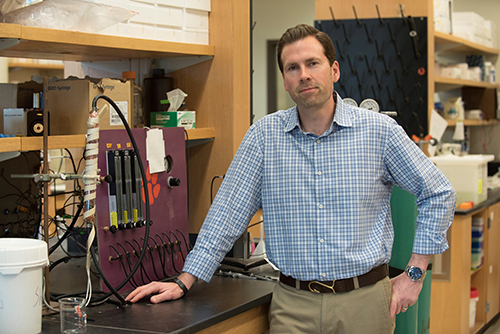 Instructor: The instructor will be Kevin T. Finneran. Dr. Finneran has 21 years of research experience in environmental engineering and environmental microbiology. He is also the owner and principal of Finneran Environmental, LLC, a specialty remediation consulting firm.
Instructor: The instructor will be Kevin T. Finneran. Dr. Finneran has 21 years of research experience in environmental engineering and environmental microbiology. He is also the owner and principal of Finneran Environmental, LLC, a specialty remediation consulting firm. -
EES 4020/6020 - Water and Waste Treatment Systems
Catalog Description: Study of the fundamental principles, rational design considerations, and operational procedures of the unit operations and processes employed in water and waste treatment.
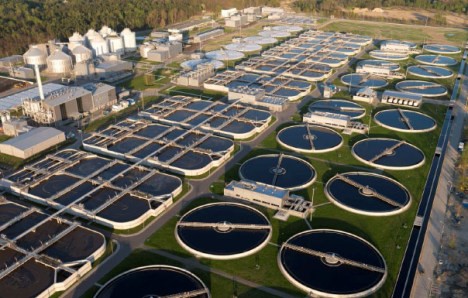 Both physiochemical and biological treatment techniques are discussed. Introduces the integration of unit operations and processes into the water and waste treatment systems.
Both physiochemical and biological treatment techniques are discussed. Introduces the integration of unit operations and processes into the water and waste treatment systems.Credits: 3
When: Second Summer 2025 (June 30 - August 5)
Prerequisite: A course in environmental engineering (EES 2020 or EES 4010). These requirements can be waived for qualified Clemson students with instructor permission and are not applicable to transient students.
Instructor: The instructor will be William Hiatt (wchiatt@clemson.edu), an Adjunct Professor of Practice in the Department of Environmental Engineering and Earth Sciences (EEES).
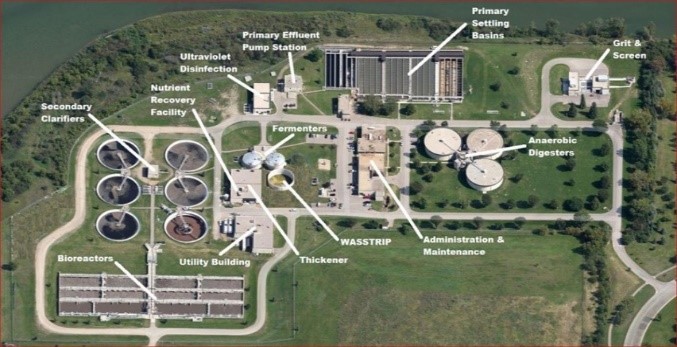 He has extensive industrial experience with AKZO-Nobel and BASF Corporation, spanning engineering, research and environmental management roles. Dr. Hiatt also has considerable consulting experience.
He has extensive industrial experience with AKZO-Nobel and BASF Corporation, spanning engineering, research and environmental management roles. Dr. Hiatt also has considerable consulting experience.This course provides a good foundation for understanding boiler feed water, ion exchange, RO and ultrapure water applications that would be of interest to ChE, Civil, ME and other disciplines.
-
EES 4270/6270 - Ecohydrology
Catalog Description: Focuses on the understanding of the mechanisms that control the circulation of water among the atmosphere, soil, and plants. The spatial and temporal linkages between soil moisture dynamics and climate, soil, and vegetation are explored. Plant strategies in water use and hydrologic controls of ecosystems are integral components of this course. It may also be offered as BE 4270 or GEOL 4270.
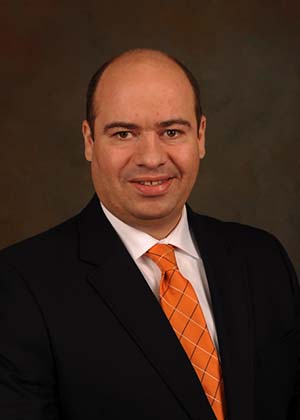
Credits: 3
When: Second Summer 2025 (June 30 - August 5)
Prerequisite: CE 3410 or CHE 2300 or ME 3080. These requirements can be waived for qualified Clemson students with instructor permission and are not applicable to transient students.
Instructors: The instructor will be Christophe Darnault (cdarnau@clemson.edu). Dr. Darnault is an Associate Professor in the Department of Environmental Engineering and Earth Sciences. His research centers on advancing sustainable water resource management, environmental resilience, and ecosystem health, with a focus on environmental fluid mechanics, contaminant transport, and hydrological modeling. His work addresses the complex challenges of climate change, urbanization, agriculture, and contaminant behavior in both surface and subsurface environments.
-
EES 4850/6850 - Hazardous Waste Management
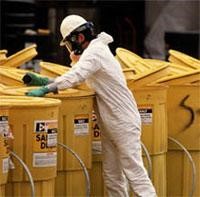 Catalog Description: Introduction to the problems, regulations, treatment and ultimate disposal of hazardous and toxic materials. Spill cleanup, groundwater transport, land disposal, incineration, and treatment technologies are discussed.
Catalog Description: Introduction to the problems, regulations, treatment and ultimate disposal of hazardous and toxic materials. Spill cleanup, groundwater transport, land disposal, incineration, and treatment technologies are discussed.Credits: 3
When: Second Summer 2025 (June 30 - August 5)
Prerequisite: A course in environmental engineering (EES 2020 or EES 4010) and a course in organic chemistry (CH 2010 or CH 2230). These requirements can be waived for qualified Clemson students with instructor permission and are not applicable to transient students.
Instructors: The instructor will be William Hiatt (wchiatt@clemson.edu). Dr. Hiatt is an Adjunct Professor of Practice in Environmental Engineering and Earth Sciences (EEES). He has extensive industrial experience with AKZO-Nobel and BASF Corporation spanning Engineering, Research and Environmental Management roles. Dr. Hiatt also has considerable consulting experience.
-
Register for Summer Courses
Current Clemson students will register for summer courses through iROAR.
If you are currently an undergraduate student at another institution, you may apply to attend Clemson as an undergraduate transient student.
If you are currently a graduate student at another institution or hold a bachelor's degree, you may apply to attend Clemson as a graduate transient/special student.
If you are not currently a college student at any institution, regardless of bachelor's degree status, you may apply to attend Clemson as a non-degree-seeking special student. High school students fall into this category. For undergraduate or graduate classes, the choice depends on whether to take 4000 or 6000-level courses. In most cases, you will want to apply as a graduate student.
Summer Application Steps
- Determine which courses you would like to take. Courses numbered 1000-4999 are taught at the undergraduate level. Courses numbered 6000-8999 are taught at the graduate level. Note that some courses are offered at both the 4000- and 6000-level. In that case, you should choose the course that grants you the credit you wish to receive. Keep in mind that the 6000-level course will include additional work in the form of research projects or papers.
- Apply as either a special student or transient student, undergraduate or graduate. If you are unsure which application you should use, please contact us by email or 864-656-0470.
- Fill out the Transient/Special Student Enrollment Form. Email it along with your choice of classes so that you may receive an override to register to:
- Undergraduate (1000-4999): Jenna Elliott
- Graduate (6000 and up): Barbara Smith
- Once your application has been accepted, register for your courses through iROAR.
Note that courses must meet minimum enrollments; otherwise, classes may be canceled and tuition refunded in full. Application fees cannot be refunded.
 Instructor: The instructor will be Kevin T. Finneran. Dr. Finneran has 21 years of research experience in environmental engineering and environmental microbiology. He is also the owner and principal of Finneran Environmental, LLC, a specialty remediation consulting firm.
Instructor: The instructor will be Kevin T. Finneran. Dr. Finneran has 21 years of research experience in environmental engineering and environmental microbiology. He is also the owner and principal of Finneran Environmental, LLC, a specialty remediation consulting firm.
